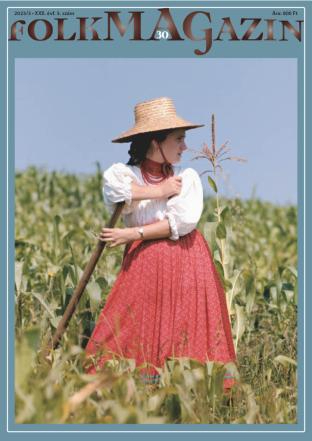Articles by Initial Letters
Berki Ferenc „Árus Feri” beszéde; A Táncház Napjára
- Issue: 2023/3
- Starting page: 9
- Serie: TÁNCHÁZ 50
- Author: Redő Júlia
- =>
Táncház 50 is a series of articles, stories and memories from earlier years of the dance house movement. In the first article written by a journalist in 1984 criticizes commentary in a book from the same time period which pronounced the dance house to be "defunct, extinct, finished…" The author of the piece printed here had written an overview of the status of the dance house movement across Hungary which he submitted to the various media. None of the media wanted to publish his overview of the dance house claiming it was not a currently relevant topic and that the movement was "not a community forming factor". One weekly newspaper rejected his article claiming that the existence of folk culture (meaning folk music, dance, craft, folklore) was ’globally questionable’. His report of the nation-wide status of the dance house movement was published finally in a periodical called "Táncművészet" [dance culture]. By Dezső László first published in 1984 in the second issue of the Téka Füzet. As a memory folk dancer, dance teacher, researcher Redő Júlia looks back over the years offering a few of her memories and impressions of the dance house movement. She remembers going to the Kassák Klub dance house in the 1970s as a kid with her parents. Juli also remembers an evening in 1994 at the Molnár utca dance house when a group of the best traditional musicians from Transylvania’s Kalotaszeg region arrived to Budapest so the ethnomusicologists could document their music. One of the musicians, Berki Ferenc ’Árus Feri’’s now famous and fondly remembered comments are printed here. Bagi István recalls the Fonó’s Utolsó Óra [Final Hour] series of Wednesday night dance houses with traditional musicians and singers from Transylvania. In particular, a time when Zerkula János (traditional fiddler from Tranyslvania’s Gyimes region) played, and the same evening was inspired to dance to music played by Laka Kicsi Aladár (traditional fiddler from another area of Transylvania). Bagi István also remembers two traditional singers from Transylvania Szilágyi Anna and Takács Anna whom he became acquainted with at the Fonó.





